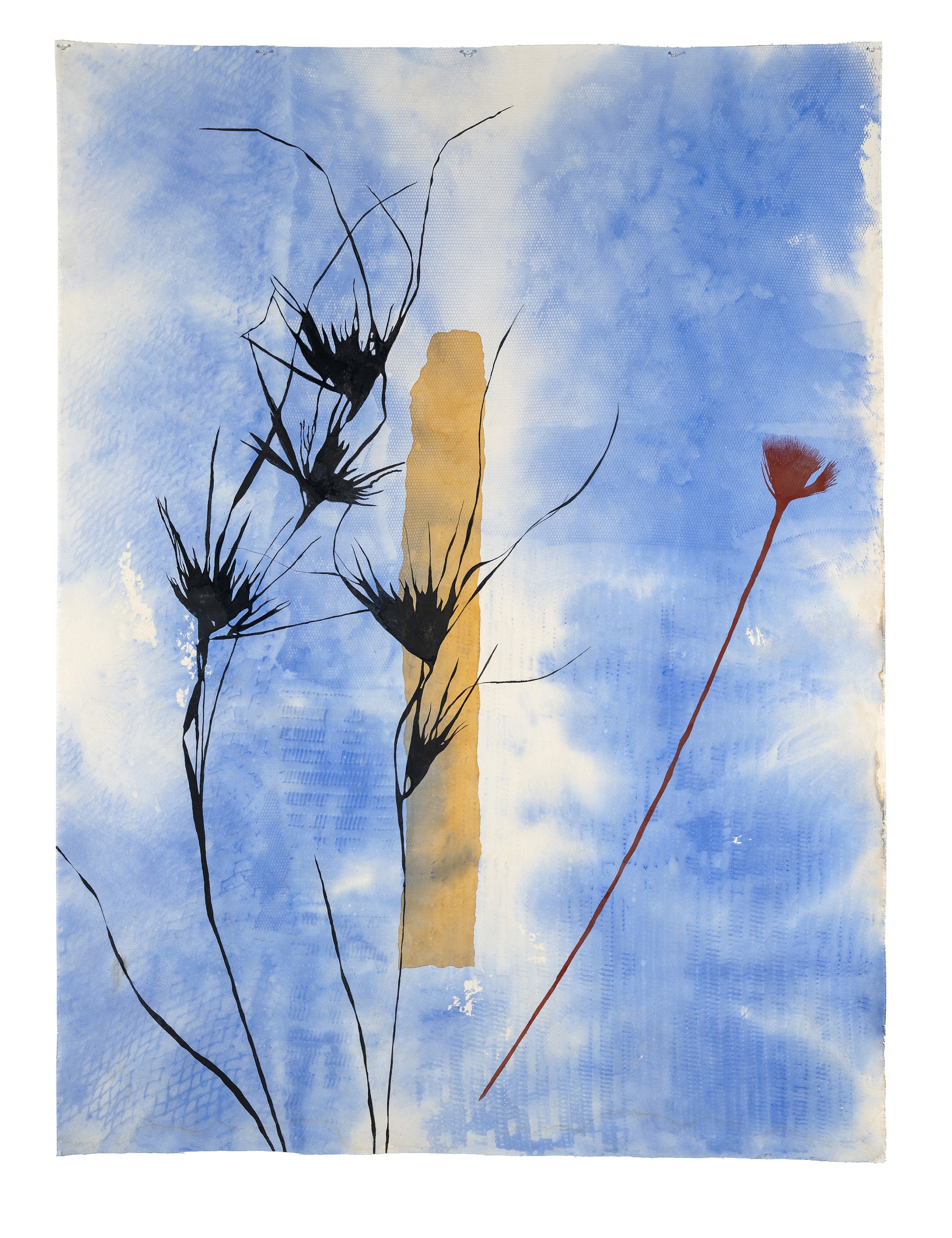An exhibition themed around the elements of earth, water, fire and air by esteemed Aboriginal artists Judy Watson and Yhonnie Scarce opens at the QUT Art Museum on March 15, featuring transcendent artworks that deliver a deeply political statement.
Curated by Hetti Perkins and presented by Birmingham-based art space Ikon and Victoria's TarraWarra Museum of Art, Looking Glass: Judy Watson and Yhonnie Scarce, arrives in Brisbane on a touring program supported by NETS Victoria
QUT Art Museum Gallery Director Vanessa Van Ooyen described the exhibition as an opportunity to view a comprehensive body of artwork by one of QLD's most acclaimed artists, Judy Watson, alongside the multidisciplinary practice of Yhonnie Scarce. She said although the two artists worked in different media, they shared a subtlety to their handling of materials.
"Watson's use of rich natural pigments, ochre and charcoal washed upon unstretched canvases, sit perfectly with the seeming fluidity and opacity of Scarce's glass objects. There is a powerful presence of elemental forces in both artists' work, and this imbeds the experience of the exhibition to their connection to Country," Ms Van Ooyen said
Exhibition curator, Hetti Perkins, said the artists were concerned essentially with Australia's 'secret war'—a battle fought on many fronts from colonial massacres and Stolen Generations through to the British atomic bomb tests at Maralinga.

Photo: Carl Warner
"The seductive beauty of Watson's and Scarce's works belies their powerful message about the sustained campaign of the destruction of Country, culture and community in Aboriginal Australia—their work is a kind of 'tender trap'," Ms Perkins said.
"With the devastating evidence of climate change in Australia, manifest in apocalyptic wildfires and storms, this exhibition delivers an urgent message."
Born in Mundubbera, Queensland, Judy Watson is inspired by her Aboriginal matrilineal Waanyi heritage. Her practice often draws on archival documents and material to unveil an unceasing and institutionalised discrimination against Aboriginal people—the 'secret war', creating politically charged work she strives to keep from being overly didactic.
"Art as a vehicle for invention and social change can be many things, it can be soft, hard, in-your-face confrontational, or subtle and discreet," Ms Watson said.
"I try and choose the latter approach for much of my work, a seductive beautiful exterior with a strong message like a deadly poison dart that insinuates itself into the consciousness of the viewer without them being aware of the package until it implodes and leaks its contents."
Many of Watson's works were made in response to tours of English, Scottish and Irish sites of prehistorical significance—including standing stones, circles and hill figures at Stonehenge, Avebury, the Outer Hebrides and Orkney—as well as visits to The British Museum and The Museum of Archaeology and Anthropology at the University of Cambridge.
"My idea was to have images of standing stone forms—shadowy or very ghostly presences—and the floating of Aboriginal cultural material across the top. It's a layering of experiences and a layering of understanding of what is culture," she said.
Yhonnie Scarce was born in Woomera, South Australia, and belongs to the Kokatha and Nukunu peoples. Working with glass, she explores the political nature and aesthetic qualities of the material, with particular interest in the crystallisation of desert sand caused by British nuclear tests in Maralinga, South Australia, during 1956-63, which displayed a shocking disregard for the safety of local Aboriginal people.
"When conducting family research or research in general related to issues of colonisation, it can be a difficult process of discovery," she said.
"It's an emotional journey and not necessarily complete, but it's a way of helping you deal with a tormented history.It's important to speak about what happened because it's still affecting Aboriginal people today."
As part of Scarce's ongoing research for the exhibition, the artist began a residency in Birmingham, a UK city with a significant history as a centre for glass manufacturing. She also conducted research at the University of Birmingham where scientific calculations that led to the development of the atom bomb were made during World War II.
Scarce's work includes Glass Bomb (Blue Danube) Series IV, a hand-blown glass bomb containing individual black and transparent yams, creating a contrast that delivers corresponding shadows.
"In my works that are created for these mourning processes, the shadows that come off the glass represent those people who are not spoken for," she said.
Looking Glass: Judy Watson andYhonnieScarce opens at QUT Art Museum on Tuesday 15 March and runs until June 19. Admission is free.
- QUT Art Museum, TarraWarra Museum of Art, NETS Victoria, the artists and the curator of Looking Glass respectfully acknowledge and celebrate the continuing culture and custodianship of the Aboriginal and Torres Strait Islanders peoples on whose lands this exhibition is presented and all communities across Australia.
- This project has been assisted by the Australian Government's Visions of Australia program, is supported by the Victorian Government through Creative Victoria, as well as receiving development assistance from NETS Victoria's Exhibition Development Fund 2019, supported by the Victorian Government through Creative Victoria, and by Creative Partnerships Australia through the Australian Cultural Fund.
- Looking Glass: Judy Watson andYhonnieScarceis only possible thanks to the generous support of TarraWarra Museum of Art's major exhibition partner, The Balnaves Foundation. Other exhibition sponsors include The Australia Council for the Arts, National Gallery of Victoria, the Gordon Darling Foundation and IAS Fine Art Logistics
Main image:
Yhonnie Scarce, Only a mother could love them 2016
hand blown glass 25.0 x 15.0 cm diameter each (variable sizes - approx.)
Monash University Collection, Purchased by the Monash Business School 2017
Courtesy of Monash University Museum of Art, Courtesy of the artist and THIS IS NO FANTASY, Melbourne






